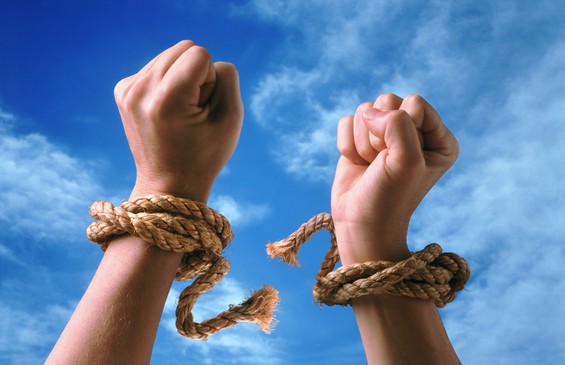I’m scrapping today’s originally scheduled post because of a message that hit my inbox overnight. I’ll keep this man’s name out of it, but a more visible response is necessary.
Mood music:
http://youtu.be/a7LH__BPqSY
This was a comment attached to a post I wrote a few months ago called “A Depressed Mind Is Rarely A Beaten Mind.” I’ll give you this fellow’s comments in bold italics, with my responses along the way.
Hello. Was wondering if I could ask you a few questions? What age did you first realize your depression? When did you accept it?
I remember becoming aware of my depression as a kid. I didn’t see it for what it was, but had those awful feelings of hopelessness. The brighter the sun shined, the darker I felt. I’ve only come to accept in recent years that this for me is a chronic condition that can be managed but not eradicated.
I respect you’re a man of God and you haven’t killed yourself, but is it worth it?
Most of the time, I’ve felt that life is worth it for several reasons. The first is that this world is bigger than me and I truly believe I was put here for a reason. Maybe it was to write the stuff I write. Maybe it was to help raise the two children God entrusted me with.
Whatever the case, I’m a guy who simply doesn’t believe we’re put here by coincidence. It doesn’t make sense to me that we would be conceived by pure randomness or by accident. That’s my faith talking, but it’s what I believe.
I’m going to be 23 and 5 out 7 days I wanna die. And I don’t know why. My heart feels like its falling into my stomach and then nothing matters no more. My mind wonders to the darker side of life. Smiles turn to blink stares and burst of rage. I sleep 3-4 hours a night and am close to only eating one meal a day. Tried writing out my feelings distracting my mind with music and activities, although no one other than myself sees me in this state.
I’ve been there. For me, music has always been a savior, and the writing has been a critical coping tool in more recent years. Rage? I’ve lived with that many times and still do some days. Thing is, I think EVERYONE has those feelings from time to time. The problem is when those feelings crowd out the good stuff.
I don’t want people sympathy so I don’t bring it up to friends or family. Worst part of everything is, I wanna help people like myself but I can’t even help myself.
It’s funny how we try and sometimes even succeed in helping others when we can’t help ourselves, isn’t it? People tell me every day that this blog helps them, and I’m always dumbfounded because I still fall short in so many areas of my own life.
One thing has gotten clear to me as I’ve grown older, though: Keeping it inside is the absolute worst thing you can do. You need to talk to family and friends. You would be surprised how much they can relate to your feelings. Most people, after all, suffer in silence. When you discover you’re not alone, you feel a strength you never knew you had.
Don’t stop there, though. If you haven’t already, find a therapist and get the special help only they can offer. A lot of people balk at the idea of seeing “a shrink.” But I would be nowhere today had I not sought one out. A therapist can help you pinpoint the fault lines in your brain and help you seal them up.
Medicine also helps me. I take two drugs for OCD, ADD and depression, and they have done wonders. Some consider these drugs snake oil, but they don’t know what they’re talking about. I try to explain it in a post called “The Engine.”
Sorry for burdening you just trying to find answers from all sources. Thanks and again I envy you. Take care.
You’re not a burden. And don’t envy me. I’m far from perfect, and the truth is that you don’t have to live your life this way. There is always a way out in which you get to live. You either want the help and the better life or you give up. I’m 41 and if I had given up in my 20s I would have missed out on so many joys that I’ve experienced since then.
I don’t know you, but based on what I’ve been able to glean from your note, you’re not a quitter. If you care enough about others to try to help them with the things you can’t help yourself with, that tells me you have it in you to bring the demons to heal.
I’ll pray hard for you, and end for now by wishing you the very best.
God Bless you.
Bill Brenner












